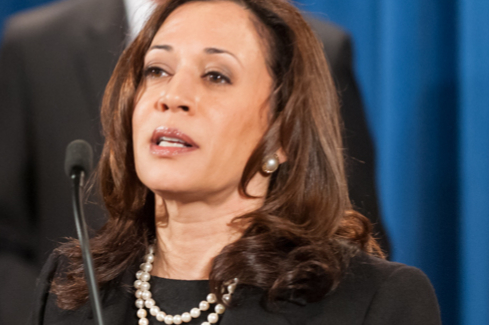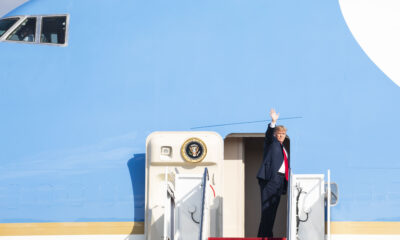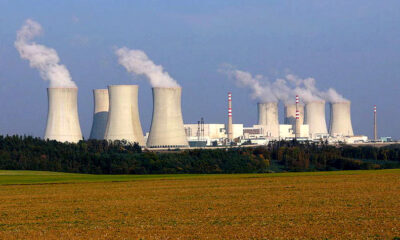Executive
How Governments Impact the Global Mineral Supply
Governments, in addition to raising mineral demand, have also affected mineral supply, moving it up or down.

Mineral demand is expected to grow significantly, with mineral shortages possible later in this decade. Governments are increasing this mineral demand with policies targeting the manufacture and deployment of mineral-intensive technologies like electric vehicles. Governments impact the mineral supply too, through policies that grow, stifle, or moderate the mineral supply. They also inadvertently affect the mineral supply when government actions unrelated to the mineral industry result in public backlash against the industry.
How governments can increase or decrease the mineral supply
Governments are increasingly incentivizing mineral production. For example, the U.S. Department of Defense financially supports domestic mining projects, such as cobalt exploration in Idaho, mining equipment for a lithium mine in North Carolina, and nickel exploration in Minnesota. The Department of Defense—in tandem with the Canadian government—is also financially backing mineral projects in Canada, including the production of cobalt sulfate, bismuth metal, and natural flake graphite. Other governments are financially supporting projects in the mineral supply chain too. Australia has funding to support mining projects, while Canada offers funding for mine-related infrastructure, as well as research and development like new processing technologies. The European Union will reportedly begin vetting mineral projects soon, and China’s Minister of Natural Resources Wang Guanghua said that China will increase its mineral exploration efforts. These government policies will likely increase the mineral supply.
Conversely, governments can delay and block mineral supply from coming online. Following environmental protests, the Serbian government in January 2022 revoked the development of Rio Tinto’s Jadar project, which would be Europe’s largest lithium mine. But in June 2024, the Serbian government signaled that it could approve the mine, although massive protests continue to roil the project.
Examples of blocking mineral production
In recent years in the United States, the U.S. government—citing environmental and tribal concerns—has blocked multiple mineral-related projects, including the Ambler Road project in Alaska and the NewRange copper-nickel project and the Twin Metals copper-nickel project in Minnesota. Illustrative of permitting struggles, the deposit associated with the Resolution Copper project in Arizona was discovered in 1995, but the mine has still not opened due to regulatory delays. In Ontario, the development of the mineral-rich Ring of Fire region, including the Eagle’s Nest nickel-copper-platinum group element project, is facing challenges as nine First Nations in the province may be impacted.
Governments can also decrease existing mineral production. In the Democratic Republic of the Congo, the Congolese state mining company Gécamines in July 2022 alleged that the Chinese company CMOC lied about the mineral reserves at the Tenke Fungurume copper-cobalt mine, resulting in CMOC underpaying royalties and interest. The Congolese government did not halt production at the mine, but it blocked exports until CMOC agreed to pay Gécamines an estimated $2 billion between 2023 and 2028. In October 2023, Panama’s Congress approved a new contract with First Quantum’s $10-billion Cobre Panama copper mine, sparking nationwide protests that the contract was lopsided in First Quantum’s favor. Panama’s Supreme Court ruled the contract as unconstitutional in November 2023, which ordered the mine to close and halted production at the mine.
Moderating the mineral supply
Some governments also seek to moderate the mineral supply. For instance, China has production quotas on mining, smelting, and separating rare earth elements, and Indonesia has production quotas on mining nickel. These quotas influence supply, although producers can import additional supply. To illustrate, the world’s largest nickel mining jurisdiction, Indonesia, imports nickel ores from the Philippines to feed its growing smelter capacity. Other governments impose export controls, which also affect the mineral supply. China has implemented export controls on gallium, germanium, and graphite, requiring exporters to have special licenses to export these minerals. Indonesia has implemented a different kind of export control on nickel by banning the export of nickel ore and thus requiring nickel to be partially processed before being exported.
Governments can inadvertently affect mineral production too. In Peru in December 2022, a constitutional dispute regarding the presidency sparked months of violent antigovernment protests that eventually halted several mining operations in the country, which is the world’s second-largest producer of copper. In May 2024, French lawmakers approved electoral changes that would allow French citizens who have lived in New Caledonia—a French overseas territory and the world’s fourth-largest nickel producer—for ten years to vote in local elections. In response, violent pro-independence protests erupted in New Caledonia and stopped nickel mining operations.
Conclusion
In short, governments will continue to affect global mineral supplies. If governments seek to increase the mineral supply, they could fund projects for mineral exploration and the commercialization of new technologies for extraction and processing. Additionally, governments could improve permitting efficiency, as well as proactively develop infrastructure such as roads and clean power supply to support mining project areas. These policies will likely take many years and billions of dollars to reap increased mineral supplies. However, such an active government policy toward the mineral sector may be the best option to bridge the mineral supply gap projected later this decade.
This article was originally published by RealClearEnergy and made available via RealClearWire.
-

 Civilization3 days ago
Civilization3 days agoWhy Europe Shouldn’t Be Upset at Trump’s Venezuelan Actions
-

 Accountability5 days ago
Accountability5 days agoWaste of the Day: Principal Bought Lobster with School Funds
-

 Executive4 days ago
Executive4 days agoHow Relaxed COVID-Era Rules Fueled Minnesota’s Biggest Scam
-

 Constitution5 days ago
Constitution5 days agoTrump, Canada, and the Constitutional Problem Beneath the Bridge
-

 Christianity Today3 days ago
Christianity Today3 days agoSurprising Revival: Gen Z Men & Highly Educated Lead Return to Religion
-

 Civilization4 days ago
Civilization4 days agoThe End of Purple States and Competitive Districts
-

 Executive3 days ago
Executive3 days agoWaste of the Day: Can You Hear Me Now?
-

 Executive4 days ago
Executive4 days agoWaste of the Day: States Spent Welfare in “Crazy Ways”















